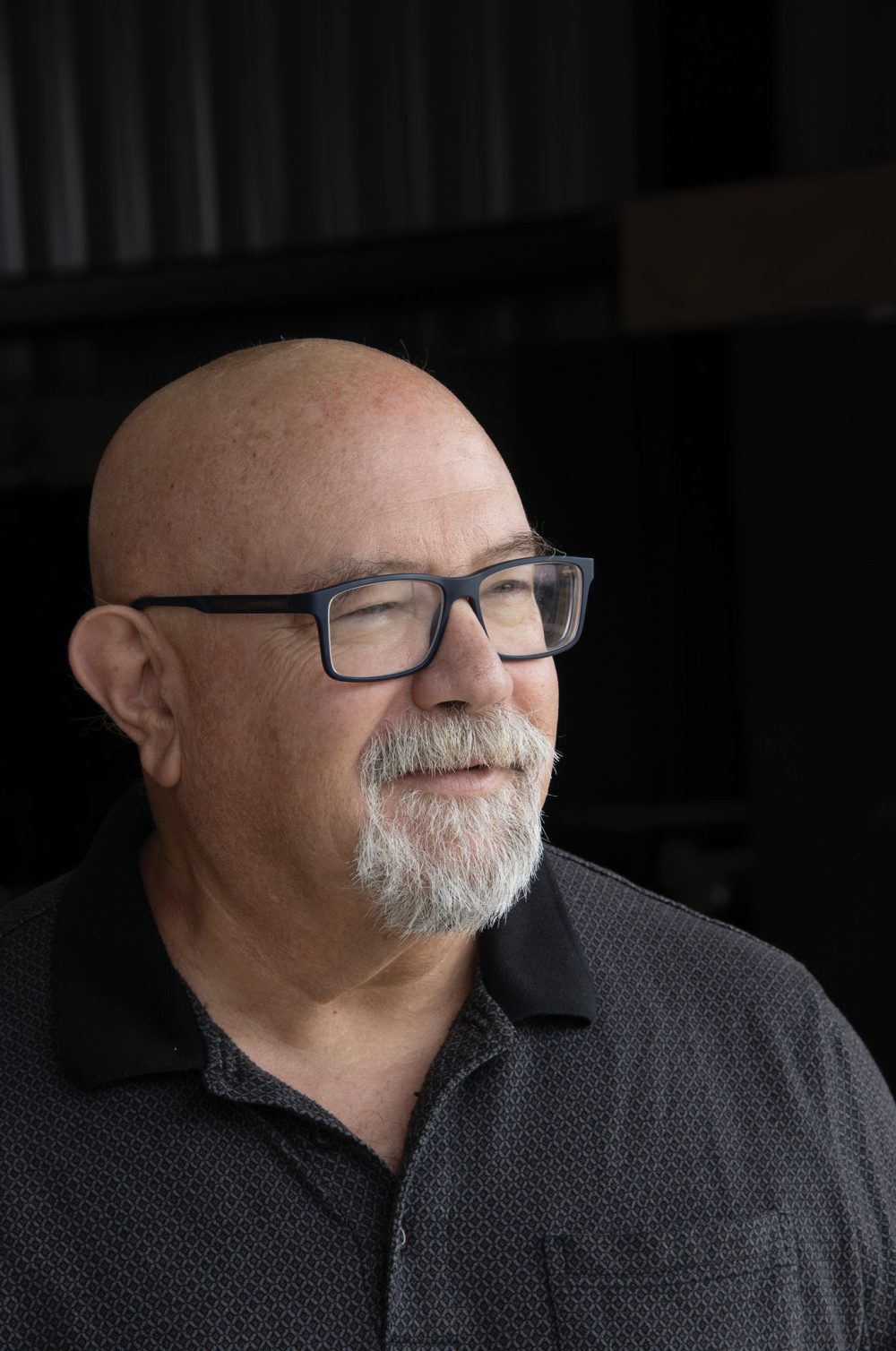Change can sometimes lead to a radical re-evaluation of your past and present. In mid-life, change can prompt you to imagine what your future might look like, including your career.
Research shows that many people in their mid-40s grow dissatisfied with their careers. The reasons behind this mid-career “crisis” can be attributed to several factors, none of which are well understood.
For example, maybe you have regrets about the past. Maybe you feel disappointed that things didn’t go according to plan or that you failed to meet some of your original goals. Maybe you even feel a little bored with the “sameness” of every day or you’re looking for a better work-life balance.
Read Also

Farm & Family – Feb 27 edition
Last week, we highlighted part one of a two-part series by GFM associate digital editor Geralyn Wichers about why you…
- RELATED: Manitoba couple reinvents their farm
So, if you’re feeling like you’re right at the bottom of that mid-life nadir, should you re-set your professional goals and — gasp — leave the farm behind?
Pivot or persevere
“I certainly wouldn’t describe my decision — leasing out my 960-acre small grains and oilseed farm in Yellow Grass (Sask.) so I could focus on expanding my agricultural communications side job — as a crisis,” says Lorne McClinton, a freelance writer, photographer and videographer from Wolfe Island, Ont. “It simply boiled down to deciding what I wanted to do with this life.”
Like many Canadian farmers, McClinton always worked off-farm. “I always had my freelance photojournalism and corporate photography business to supplement farm income,” he says. “For a while I was a partner in a film and video production company, and I also taught photojournalism and photography for a decade at the University of Regina.”
Starting in 1983 he had spent 20 years constantly juggling his schedule to meet the time demands of his farm and off-farm enterprises. But after weathering yet another disaster, in this case a prairie-wide killing frost in August 2004, he says he’d had enough. “I decided it was high time I simplified my life.”
A self-described workaholic, McClinton always struggled to maintain a healthy work-life balance. “I didn’t realize how big a mess I was making of things until I had a chance conversation with my first wife in the mid-1990s,” says McClinton. “It started when I casually mentioned to her that I couldn’t recall much of our youngest son’s first years.”
- RELATED: Farmers need to find time for family
He says her response felt like he’d been doused with a cold bucket of water. “Basically, she confirmed it was true, then listed all the reasons why: I was teaching a full load at the university, working on a co-production with a Russian company on Canadian agriculture, shooting a book on the RCMP, and still taking on photography assignments. She added that whenever I did make it home, I jumped into the tractor or combine and headed out to the fields. She ended by saying that no wonder I don’t remember those years; I was never there.”
And so, he took stock of his life and decided to sell his share of the production company to his partners in 1994 and left the university in 1995 to concentrate solely on farming and ag communications.
McClinton says that leaving academia was a major career decision. To calm his and his former wife’s fears, he developed a business plan for a business-to-business agricultural communications company. He wanted to focus on selling his writing and photography skills to high-paying clients such as advertising agencies, corporations, non-governmental organizations (NGOs) and government agencies. “It allowed me to combine my three great passions — writing, photography and farming — without sacrificing our financial security,” he says.
He felt like he was on to something as soon as he started researching. “I knew it had tremendous potential,” says McClinton. “My farming background had given me a lot of inherent knowledge about the industry, and I was well-known as a photographer and to a lesser extent, a writer. I started knocking on doors and my business exploded.”
Finding the re-set button
The original plan was for his wife to manage the day-to-day grain operations now that the children were in school and he would focus on building the off-farm business. But it had mixed success. “My off-farm business thrived. I was soon travelling all over the Prairies taking photographs and writing for a ‘who’s who’ of Canadian agriculture ad agencies, corporations, non-profits and publications,” McClinton says. “However, our marriage disintegrated during the process. After our divorce, my ex-wife remarried a helicopter mechanic in the armed forces and the children moved with her across the country to an airbase at Goose Bay, Labrador. It was not a happy time for me.”
Through all the turmoil, however, his communications business thrived but “it demanded an increasing amount of my time,” reflects McClinton. “It eventually got to the point where no matter what I was doing, I ought to have been doing something else. Once more I was burning the candle at both ends except that now I was in my early 40s and not nearly as enamoured with the 60+ hour work week.” He started dating a television and live entertainment producer in Montreal, Que., who eventually became his second wife in 2002. “I knew that my work habits had already led to one divorce and cratered the short-lived common-law relationship that followed it. I was determined not to let history repeat itself,” he says.
Something had to give.
But with two children rapidly approaching university age, McClinton needed to increase his income to help pay for their studies. “I asked myself: What’s the best way to do that?”
“The answer looked simple when I dispassionately looked at the numbers,” he recalls. “I could lease out my farmland without incurring much of a financial penalty and still retain the ability to capture any potential capital gains in farmland values. I determined I could more than offset any annual income discrepancy by taking on the communications assignments I was passing up due to time constraints. And it became a no-brainer decision when John Deere recruited me to be the Canadian field editor for their Furrow, Le Sillon, and Homestead publications.”
McClinton started to lease his farm in 2005, allowing time to pursue his other passions and goals. He says it was without a doubt the best decision. “First, it allowed me to more easily retain a close relationship with my sons as they grew up on the other side of the continent from my farm,” he says. “And traveling with me across Canada, and occasionally internationally, gave them experiences they would not have had if I had continued to farm. It also allowed me the opportunity to be a hopefully much better husband to my second wife and I think a pretty good stepfather to her children, too. Finally, it’s given me a great second career that I truly enjoy.”
Was it an easy decision to rent the farm and pursue a second career? McClinton answers with an emphatic “no.”
“I agonized over it for at least a year,” he says. “But once I made that decision, the stress of everything lifted off my shoulders. I knew it was the right decision for me.”
The mid-life — mid-career nadir
Mountains of research point to what many of us already know: middle age vies for first place with those awkward teenage years as the most difficult time of your life.
Throw in the fact that mid-life often coincides with mid-career, and we might start to question the purpose of, or our satisfaction with, one of the biggest elements to which we attach our identity: our profession.
Which prompts many of us to ask the question MIT philosophy professor Kieran Setiya asked in his HBR article ‘Facing Your Mid-Career Crisis’: “How can doing what is worthwhile seem empty?”
Setiya’s suggestion that a mid-career crisis might be because “too much of our time is spent putting out fires and avoiding bad results, instead of pursuing projects with existential value — the kind that makes life worth living…” might resonate with many farmers. “Satisfaction,” he says, “is always in the future or the past; no wonder the present feels empty.”
If the idea of doing more of the same, day in and day out for the next several decades, makes you cringe, maybe a mid-career re-set is in order.
Anyway, being too old to start over is so last century. Given that the average life expectancy of a Canadian is 81.3 years (2022 Statistics Canada), there’s a big chunk of time before and after mid-life.
Some questions to ask yourself if you’re considering a mid-career re-set are:
- Do my professional goals still align with my personal values, interests, goals?
- Do I feel a sense of satisfaction and fulfillment with my work?
- Do I see myself on this path for the rest of my career/life?
It can also be helpful to consult a career coach. You can check out the Career Professionals of Canada website at careerprocanada.ca to search the directory for qualified career coach professionals specializing in various areas of career development. You can also search “career coach + (your region)” on Google or type “career coach” into your LinkedIn account search bar to find someone close to you.
While the term “mid-life crisis” has been around since 1965 when it was coined by psychoanalyst Elliot Jacques, economist Hannes Schwandt, avoids the term. “’Crisis’ is really this idea that it’s a dramatic thing that has to stop immediately, it has to be short and we have to get rid of it,” he says in The Atlantic podcast. “If you would tell your teenagers who are going through puberty that this is (a crisis) that would certainly not be helpful… to the same extent, it might not be helpful to tell people in their mid-life nadir… that it’s a crisis.”
Schwandt concludes optimistically: “(T)he really fascinating thing is that this mid-life dissatisfaction is often really unrelated to successes or lack of successes in different domains of life. It just seems to be something much more general and something that is maybe more related to biology. It might be something more like a second puberty rather than just something that is driven by people’s specific circumstances… this phenomenon of mid-life dissatisfaction is not something exceptional. It’s not something that is happening as a personal crisis. It might be just a normal developmental stage.”
– This article was originally published in the March 2024 issue of Country Guide.















